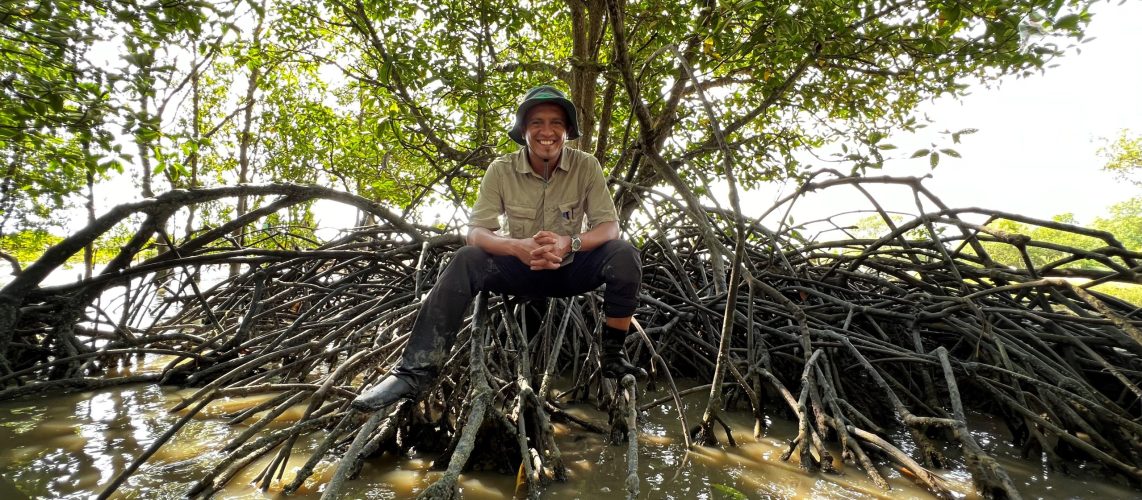This article has been published in New Straits Times on 24th March 2021.
THE International Day of Forests was recently celebrated gloriously with the launch of the Malaysian Forestry Policy.
For the first time, this policy has brought Peninsular Malaysia, Sarawak and Sabah together for a more coherent management, protection and conservation of forest resources and natural heritage.
The launch was a timely reminder on the importance of forests as well as to guide all Malaysians to pay extra attention in protecting them for our own survival.
Malaysia had seen a significant decline in forested areas since the middle of the last century. Rapid exploitation of resources for the sole purpose of economic development had caused tremendous change to the natural landscape and our social fabric.
Anthropogenic disturbances, coupled with the compounding effects of climate change, have triggered numerous chain reactions affecting the environment and our social wellbeing.
Deforested highlands may no longer retain large amounts of rainfall, while deforested coastal forests may not be able to provide protection and security for coastal communities. Direct and indirect anthropogenic activities on forests come in many faces and phases.
Examples include land clearing for unsustainable timber extraction, mining and quarrying, as well as changing land use for industrial, agricultural and urbanisation purposes.
Stern action must be taken by the authorities to control the process and avoid damage from taking place.
Indirect or cascading anthropogenic disturbances, on the other hand, are more worrying as the impact may prevail over a longer period. The building of dams, establishment of landfills in intertidal zones, sand mining in rivers and coastal plains, and effluent discharge from agricultural land, aquaculture ponds and industrial parks are some of the human activities that trigger many negative indirect consequences on forests, particularly mangroves.
On Oct 12 last year, while struggling to contain the coronavirus, we were shocked by an oil spill in the waters off Negri Sembilan and Melaka. The oil spill reached the shores of Port Dickson, causing severe damage to the beaches and triggered the death of mangroves in Tanjung Tuan Forest Reserve (TTFR).
After five months, many trees in the affected three-hectare site of TTFR had defoliated. Studies in the past six decades around the world have recorded and reported the detrimental effects of oil spills on mangroves and other coastal and marine lives, habitats and ecosystems.
Besides causing the death of flora and fauna, the oil spill will trigger other significant effects to decrease the health and integrity of the habitats and ecosystems.
Long-term monitoring have shown that oil residues from decade-long spills are still traceable in the ecosystem, causing various terminal impacts on organisms and their habitats.
The impact of an oil spill, particularly on mangroves, varies depending on species, habitat, sediment, locality and the oil itself.
It is important for these to be scientifically verified to assist in the rejuvenation of precious mangrove forest patches as these factors determine the coping and recovery mechanisms of the habitat and ecosystem.
Immediate planting of seedlings or saplings may not be sensible as past research on mangroves planted in oily sites have shown very low success rate of survival.
To address this, we must go back to the basics by understanding the fundamental principles of mangrove restoration, that is to provide a sufficient and conducive condition for the ecosystem to recover naturally.
Strong measures must be taken to prevent such incidents from recurring in the future.
An adequately-supported rapid response plan will also be able to contain any oil spill in the sea from reaching our shorelines and reducing the impact on coastal and marine organisms, habitats and ecosystems.
This is a very critical national issue for Malaysia as a maritime country, as well as for being one of the largest mangrove-holding nations in the world.
In embracing the spirit of the new Malaysian Forestry Policy, the Greening Malaysia campaign, the United Nations Decade of Ecosystem Restoration and the United Nations Decade of Ocean Science for Sustainable Development, it is crucial for issues concerning our forests to be tackled in a holistic and integrated manner.
Protecting the integrity of forests and our natural habitats and ecosystems will ultimately secure our livelihood and
wellbeing. Let’s be a responsible generation who respect and take care of our forests, appreciating the roles, benefits and services they provide, while ensuring their sustainability for the future generation.
